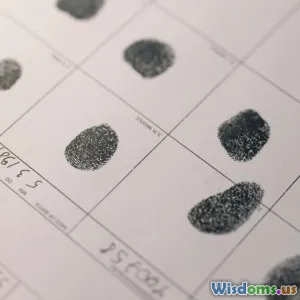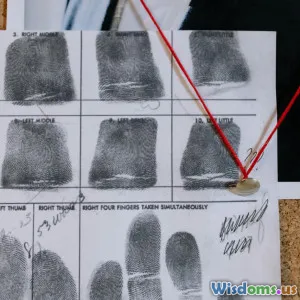
Effective Communication in Crime Solving
6 min read Explore how effective communication enhances crime-solving efforts and fosters collaboration among law enforcement and communities. (0 Reviews)
Effective Communication in Crime Solving
Effective communication plays an essential role in the realm of criminology and crime investigation. From the initial stages of gathering evidence to the final aspects of prosecuting a case, clear and concise communication can make the difference between a successful investigation and a failed one. This article will delve into the importance of effective communication, its impact on crime-solving processes, and practical strategies for law enforcement and communities alike.
The Importance of Effective Communication
Effective communication is fundamental to the success of any investigation. It facilitates the exchange of critical information among law enforcement officials, victims, witnesses, and the community. Key reasons why effective communication is crucial include:
-
Building Trust: Open lines of communication between law enforcement and the community foster trust. When community members feel they can communicate freely with authorities, they are more likely to report crimes and provide valuable information.
-
Enhancing Collaboration: Effective communication promotes collaboration within law enforcement agencies and between different departments. This collaboration ensures that all parties involved are on the same page, leading to more efficient investigations.
-
Information Sharing: Clear communication channels allow for the quick dissemination of information. This is particularly important when dealing with time-sensitive investigations where every second counts.
-
Reducing Misunderstandings: Miscommunication can lead to errors in investigations. Establishing clear communication protocols minimizes misunderstandings and ensures that all team members are aligned in their objectives.
Communication Strategies in Crime Solving
To leverage the benefits of effective communication, law enforcement agencies can implement several strategies:
1. Training in Communication Skills
Law enforcement personnel should receive training in communication skills, including active listening, empathy, and conflict resolution. This training can enhance their ability to engage with the community and extract valuable information from witnesses and victims.
2. Utilizing Technology
Modern technology offers numerous tools for enhancing communication. For instance, social media platforms can be used to share information quickly with the public, while internal communication tools can facilitate real-time updates among team members. The use of mobile applications can also help in gathering tips and reports from the community.
3. Community Engagement Initiatives
Proactive community engagement initiatives, such as town hall meetings and workshops, can bridge the gap between law enforcement and citizens. These initiatives create an environment where community members feel comfortable sharing information, thus aiding in crime prevention and solving efforts.
4. Creating Clear Protocols
Establishing clear communication protocols ensures that everyone involved in an investigation knows who to communicate with and when. This clarity can streamline processes and improve overall efficiency.
The Role of Victims and Witnesses
Victims and witnesses are vital sources of information in crime investigations. Effective communication is key to ensuring that they feel safe and supported while providing testimony. Law enforcement should create a supportive environment where victims and witnesses can share their experiences without fear of retribution. This includes:
- Providing Clear Information: Law enforcement should outline the process victims and witnesses can expect, helping them understand their roles and what to anticipate during investigations.
- Ensuring Privacy: Protecting the identity and privacy of victims and witnesses encourages more individuals to come forward with information.
- Offering Support Services: Providing access to support services, such as counseling, can help victims and witnesses feel more comfortable sharing their experiences.
Conclusion
Effective communication is a cornerstone of successful crime solving. By prioritizing clear, open dialogue among law enforcement, victims, witnesses, and the community, agencies can enhance their investigative efforts and foster a safer environment. As crime-solving methodologies continue to evolve, integrating effective communication strategies will remain crucial in building trust and facilitating collaboration. In a world where every piece of information can be pivotal, the ability to communicate effectively could very well be the key to justice.
Rate the Post
User Reviews
Popular Posts





















